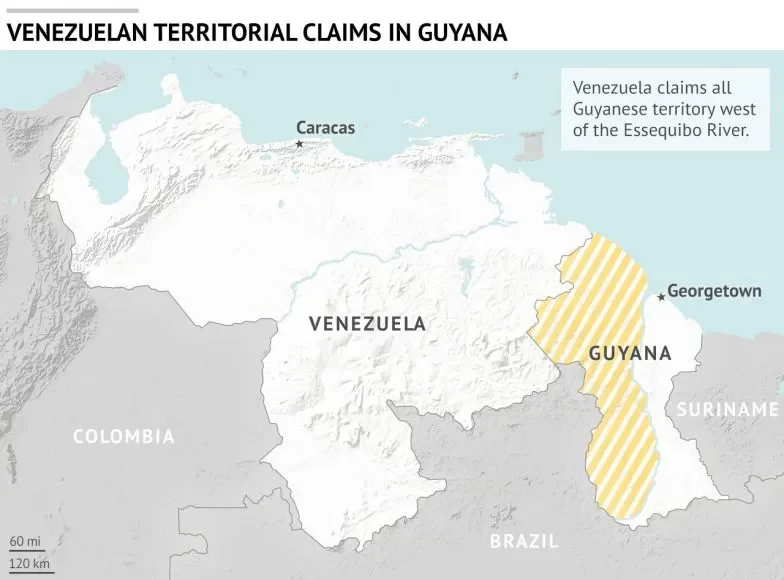Brazil has amplified its military presence in the north, responding to a crisis ignited by Venezuela’s planned referendum.
This referendum concerns the annexation of a large part of Guyana, specifically the Esequibo region.
The Ministry of Defense, led by José Múcio, monitors the situation closely. It has boosted defense activities along the northern border, significantly increasing military personnel.
Key changes include expanding the Boa Vista army squadron to a larger regiment and enhancing a border platoon’s capabilities.
These moves and ongoing training in Operation Ágata Norte underscore Brazil’s commitment to regional stability.
Military sources indicate that no extensive mobilization has been ordered. This suggests President Lula’s administration aims to caution Venezuela and Guyana.
Mucio’s earlier promise to reinforce Pacaraima, Roraima reinforces this intent.
The Itamaraty, Brazil’s foreign affairs ministry, is deeply concerned about the sovereignty dispute over Esequibo.
This dispute dates back to colonial divisions and has long been a long-standing issue between Venezuela and Guyana.
Despite historical agreements and UN involvement, the conflict remains unresolved, especially after significant oil discoveries in the region.
The economic implications are substantial. Esequibo’s underdeveloped region has seen newfound prospects for prosperity, dramatically impacting Guyana’s GDP growth.
Venezuela’s recent actions, including the controversial referendum, have heightened tensions.
Diplomatic and military experts see two potential outcomes: Maduro either seeks political advantage or risks military confrontation.
The latter could involve complex operations, affecting Brazil due to its geographic proximity.
Uncontrollable situation looms
Despite Maduro’s close ties with President Lula, the risk of an uncontrollable situation looms.
This concern prompted Brazil’s defense alert following a Venezuelan delegation’s visit to Brasília and discussions about potential military actions.
Guyana, now supported by significant U.S. interests in its oil reserves, adds another layer to this complex geopolitical scenario.
Vice President Bharrat Jagdeo’s engagement with the U.S. State Department before the referendum indicates the gravity of the situation.
For President Lula, the crisis poses a significant political challenge.
His support for Maduro’s regime, which faces criticism for authoritarian practices, complicates Brazil’s diplomatic stance.
Presidential advisor and ex-Foreign Minister Celso Amorim’s talks in Caracas highlight the gravity of the escalating regional crisis.


